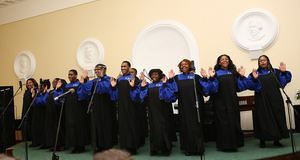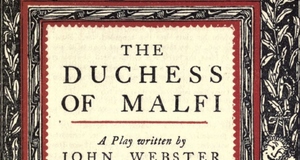Social Brokers: Reinforcing the Family to Increase Social Mobility
By
2016, Vol. 8 No. 04 | pg. 1/1
IN THIS ARTICLE
KEYWORDS
Social and economic wellbeing are not simply determined by the choices one makes. Social class and poverty display consistent patterns across groups and generations making social mobility and economic success difficult in individual lives. But there are some who seem to defy the limitations of social class and become successful despite humble or difficult beginnings. In particular, social brokers like governmental organizations, charities and philanthropists have become common in trying to decrease the negative effects of social stratification and provide resources for future success stories in society. Considering that brokers can have a positive impact on society, evidence from a series of interviews suggests that there could be great benefit to establishing links between brokerage organizations and natural brokers, like families. The Roots of ClassFor the purposes of this paper, the term social brokers will refer to any organization or individual that acts to provide social capital, knowledge and opportunities traditionally reserved to members of higher social classes to members of a low social class. But for social brokers to have a role in society there must be an actual division of individuals into social classes, and understanding the process through which these divisions are created is vital to seeing a broker’s role and influence. Over time, a society develops a list of characteristics or skills it deems important or valuable. Whether these are ascribed or achieved measures, individuals are rewarded differently based on these criteria. These differences in rewarding foster inequality between members of society and begin grouping those individuals over time (Iceland, 2013; Lareau, 2011). It has also been observed that while these preferences exist, it is difficult to nail down exactly which measurable factors are preferred by society (Lareau, 2008). In many ways it reflects a “folk concept of class” (Conley, 2008), where individuals in society, and eventually society as a whole determines class based on the overall socially constructed perceptions of influential demographics. Those preferences often begin to spread and are eventually established as social norms by the most influential groups or individuals in society. People are viewed differently and are allotted stereotypes simply based on how society’s preferences rank them in terms of overall value.Socially Constructed DisadvantageAs these differences become more engrained and consistent, the idea of social class develops further, and structural frameworks begin to form. Fair competition for jobs becomes a test to see who can convert their usable human, social, and cultural capital in the most meaningful ways. This reinforced meritocracy reflects society’s unofficial systems of operation that qualify certain individuals for success, while those without the necessary qualifications are left out of the exchange of valuable resources (Brooks, 2011). These systems stratify individuals in different directions in a way that can affect economic, educational and social opportunities (Massey, 2007). Marxian ideology further emphasizes this separation by describing the fundamentally different bourgeois and proletariat, those who have access to the means of production and those who do not (Marx, 2008; Wright, 2011). In the same way, there exist differences in access to opportunity: those who have the class knowledge and social capital to fit society’s complex social frameworks and those who do not. The effect of these differences in social and economic capability often lead to poverty, creating a world of limited opportunity and chronic disadvantage for certain sub-groups in society. Intergenerational poverty remains around fifty percent, making it more difficult for children whose parents experienced poverty in their lifetimes to become socially or economically mobile (Iceland, 2013). Women, racial minorities, mixed families and children are disproportionally represented among the poor and poverty seems to find geographic niches, even outside crowded urban centers, further limiting certain groups more than others (Iceland, 2013). General economic shifts can induce bouts of poverty in certain demographics while others are not affected in the same ways (Iceland, 2013). Changes in economic processes alter the job markets for large groups of workers, particularly low skilled wage earners who have begun losing jobs as the US economy has shifted to a more service and technology centered infrastructure. The Central Role of BrokersResources and opportunities are consistently distributed unevenly across generations, large scale societal consequences are felt by specific groups that are unable to adjust, and an isolated, underprivileged class of Americans remains clumped together without hope of upward mobility. Despite these difficulties, the only real separating factor between classes is a knowledge of social norms and the skills to navigate the structures those norms create in society. Brokers can bridge such gaps in understanding and experience while providing opportunities to underprivileged demographics enabling them to escape the negative socio-economic trends that would normally limit their social mobility. In particular, this study will focus on one example of a social broker to gauge its effects and see how influential its resources have been and are in the lives of individuals from different backgrounds. The broker in question is a church congregation, a cross-class community common to many Americans regardless of class. This church in particular focuses on intentionally making its congregations socially and economically diverse by dividing up its congregations according to geographic area, not by random choice or the preferences of its members. The result is often a diverse group of individuals that come together and create connections with others outside their normal social circles. Less wealthy neighborhoods are often paired with middle and upper class areas, providing interaction that would be less common in normal day-to-day activity. In addition to these networking benefits, this particular church also provides employment services, life-skills workshops and activities, subsidized higher education at church sponsored schools and even some personalized welfare assistance in times of need. It will be observed whether this individual broker was the sole key to the success and mobility of these individuals, or if the broker really had any independent effect when other factors are considered. MethodsFive individuals were interviewed in a one-on-one setting (those interviewed will remain anonymous, but each will be given a pseudonym for the purposes of this study). Interviewees for this small investigation were selected from friends and family members of the researcher and represented different early-life experiences when class was considered. Some grew up in homes where both parents only graduated high school while others were not the first members of their families to attend college or graduate school. This method of selection ensured that participant’s experiences were relevant to the research question and that a variety of socio-economic backgrounds were represented. The sample was small and not randomly selected, but this particular investigation is not meant to make generalizations about a population wider than those who have felt the influence of a particular broker in their lives: a comprehensive church community. ResultsIn their responses, participants provided evidence that in their lives their success and social mobility was connected to two separate brokers: their families and their church congregations. Details of family background and its influences on the interviewee’s lives presented evidence that a family unit can act as a cross-generational broker, where skills and experience are given vicariously from parent to child. Despite that role as a type of broker, it also became clear that often a family’s collective experience and social capital is not enough to ensure social mobility in the lowest socio-economic classes. Responses suggest that the infusion of opportunity and additional skill that led to their current social mobility came from participant’s connection to their church community. This broker supplemented the human capital provided by parents in addition to expanding social networks and providing additional benefits and opportunities that contributed to class mobility. The Role of Money and ExperienceAn obvious disadvantage that surfaced in the experiences of some participants was the monetary resources and societal experience parents had at their disposal. Robert described how his parents were in a socio-economic position where they were never able to support him financially in seeking further opportunities. Luckily, he said, his mother in particular stressed the importance of getting good grades and earning scholarships in order to insure that a good education was possible and that he would work to escape his parent’s social limitations. Intuitively, these situations may be the exception: that it is more likely for individuals from underprivileged backgrounds to remain in the same class or socio-economic state as their parents (Iceland, 2013). In contrast to this norm of limited mobility, both Nancy and Linda had similar stories to Robert. Both women came from homes where neither of their parents graduated college and had no experience in the norms and traditions of higher education. Without that vital experience and monetary support, it is often more difficult for students to enter and finish college. In contrast to these interviewees, Jane and Thomas cited the benefits they enjoyed having grown up in families where both parents had reached at least a bachelor’s degree. Thomas in particular noted that considering his background with his father’s position as a doctor, he enjoyed significant support from his parents as role models, but also in the form of monetary support, meaning that he would not have to work his way through school. This difference in both monetary and experiential support gave Jane and Thomas advantages that could have determined whether they attended college. But when compared to the other interviewees of this study, there was no real, long term benefit that set these two apart from the other three: all finished, or are on track to finish at least a bachelor’s degree, and both Robert and Nancy went on to finish graduate degrees, again without the support or experience of family members. This begs the question: are these advantages within an individual’s family (experience and financial support) really determining factors when a broker is in place to offer the same kind of support to all? Some churches and other brokers can offer scholarships, subsidized tuition for attendance to sponsored schools, workshops and career services to those within their networks. In addition, such brokers can provide access to individuals and mentors who have attended college or graduate school, adding their experiences to the list of tools available to members of the community regardless of their social class or financial position. With those resources, the playing field among our five interviewees was perhaps more even than in a competitive world without a moderating broker. Ranking Determining FactorsNear the end of the interview, participants were asked to rank several societal, individual and biological factors in their importance on future economic success. The highest ranked option was that opportunities, whether educational or economic, played the most significant role in determining one’s future success. Linda put it best as she described that “whether or not you work hard, if you don’t have the chance to work, or to grow, that effort doesn’t mean anything.” It was clear that all participants recognized the need for opportunities despite a commonly held belief that one can simply work hard and be successful. Sometimes those opportunities can come from within one’s own family, but for those of lower social classes, those connections can be rare. While opportunities were ranked as the most important determining factor, family background was seen as also very important, even by those who did not have promising family backgrounds. The order of these rankings is indicative of an important concept in considering class mobility: a family can act as a broker of information and skills, but often lacks the social capital to create real opportunity for those who need it, as was the case with Robert, Nancy and Linda. In other words, families can create good workers and good learners by teaching worthwhile principles in the home like character and hard work, but there is no guarantee that these skills would transfer to a job unless the correct connections were made. While families can act as a type of broker between generations, an additional question in the interview was introduced to analyze the effect of another broker, the multi-class church community the participants were all active parts of, on their economic success. The question asked them to put the church on the scale from one to five, as the original five factors were organized, and put it equal to one of the factors in importance. Overall, the respondents equated the value of being a member of their church with the value of their family background, not of opportunity as the function of a broker might suggest. These responses were surprising, but led to worthwhile results upon further examination. The Role of a ChurchIn some responses, the church community was viewed as a connector of persons, or a linkage bringing together both successful and unsuccessful people. This supports the idea that a church could fulfill the basic function of a brokering organization which Robert described in detail in the interview. He said, in effect, that one of the benefits of being a member of the church was that he “came in contact with a lot of diverse people from different backgrounds,” which can often present opportunities for jobs or increased social capital. Robert cited his education and successful marriage as attributed to connections made through membership in the church, and as all those interviewed attended a church sponsored university for a significant portion of their higher education, they also enjoyed monetary subsidies to tuition provided by other church members. Their connection to this cross-class broker provided social opportunities in marriage to others from different family backgrounds, educational opportunities, and the chance to overcome some financial burdens that often keep others from entering or finishing college. But in support of respondents ranking of their church and their family as equally important in determining their future success, it became common for respondents to describe how brokers and families were similar in their roles. Jane and Thomas both described how their church’s teaching of provident living help educate members on how to use money wisely or “be frugal” as Jane put it, and Nancy claimed that, in her life, she saw the church’s teachings as a motivating factor. She described how without the church, she probably would not have pursued monetary gain because she was raised to not care about money. She described the church’s teaching that one should seek to have enough material wealth to “do good and serve others” and that it was a life altering infusion of perspective. This motivated her to further her education, pursue a career and work for improved socio-economic status when she claimed she would not have had she not been exposed to these teachings. This function did not create any additional opportunity in and of itself, but because Nancy came in contact with others with different perspectives on economic success her own views changed beyond the reach of her family background. Brokers, in this sense, should not be meant to replace a family unit as a broker of information and skills, but to work with families to provide opportunity. While brokers can help fill in gaps of knowledge and skills, it seems that, in the experiences of the respondents, the broker did not fully replace the influence of their parents and family traditions in terms of preparing them for successful futures. Respondents all reflected primarily on the influence of their parents, not their church in their success. In that light, brokers need to act as a supporting structure to a family unit or a means to connect that family to the rest of the world in way that bridges gaps between social and economic classes. ConclusionsBrokerage institutions, like church congregations that include multiple social classes, appear to make a large difference in individual lives as they contribute needed skills (giving an artificial boost to capital transferred from family background) while also introducing increased opportunity into the lives of members of its community. But churches, government programs, non-profit organizations, and individuals themselves should not be the only methods employed to fix poverty. The key lies in the connection of natural brokers, like families and networks of friends so that all aspects of life can be addressed. In this way, individuals will not only remain connected to others within their socio-economic sphere, but it seems that the overall benefit will be more comprehensive and more consistently successful. Some families have more obstacles in life than others, but that does not mean that they should be dissolved or abandoned. Perhaps if brokerage institutions can work with families and build on their individual strengths and values, as these church communities seem to be able to do, then maybe success stories will be about entire families that made their way out of poverty instead of individuals that got lucky. ReferencesBrooks, D. (2011) Bobos in paradise the new upper class and how they got there. In D. B. Grusky & S. Szelenyi (Eds.), The Inequality Reader: Contemporary and Foundational Readings in Race, Class, and Gender (128-35) Boulder, CO: Westview. Conley, D. (2008) Reading Class Between the Lines (Of This Volume): A Reflection on Why We Should Stick to Folk Concepts of Social Class. In A. Lareau & D. Conley (Eds.) Social Class: How Does It Work? (366-73) New York: Russell Sage Foundation. Iceland, J. (2013) Poverty in America: A Handbook. Third ed. U of California. Lareau, A. (2008) Taking Stock of Class. In Social Class: How Does It Work? A. Lareau & D. Conley (Eds.) Social Class: How Does It Work? (3-25) New York: Russell Sage Foundation. Lareau, A. (2011)Unequal Childhoods: Class, Race, and Family Life. 2nd ed. Berkeley: University of California Press. Marx, K. (2008) Karl Marx: Classes in Capitalism and Pre-Capitalism. In D. B. Grusky, M. C. Ku, & S. Szelényi (Eds.) Social Stratification: Class, Race, and Gender in Sociological Perspective (79-88) Boulder, CO: Westview. Massey, D. S. (2007) Categorically Unequal: The American Stratification System. New York: Russell Sage Foundation. Wright, E. O. (2011) Class Counts. In D. B. Grusky & S. Szelenyi (Eds.), The Inequality Reader: Contemporary and Foundational Readings in Race, Class, and Gender (48-52) Boulder, CO: Westview. Suggested Reading from Inquiries Journal
Inquiries Journal provides undergraduate and graduate students around the world a platform for the wide dissemination of academic work over a range of core disciplines. Representing the work of students from hundreds of institutions around the globe, Inquiries Journal's large database of academic articles is completely free. Learn more | Blog | Submit Latest in Sociology |


















